Q&A: Voting in the Scottish independence referendum
- Published
On Thursday, 18 September, registered voters in Scotland will be asked the referendum question: "Should Scotland be an independent country?"
Those voters will have a straight choice between "yes" and "no".
For the first time - and for this vote only - 16 and 17 year olds will be able to sign up to the electoral register and make a choice in the historic poll.
Here is a quick guide to who has the right to vote in the referendum, how you go about registering to vote and the different ways to vote.
Who can vote?
.gif)
More than four million people in Scotland are eligible to vote. But who are they?
British, Irish and all other European Union citizens who are resident in Scotland will be able to vote.
Commonwealth citizens who either have leave to remain in the United Kingdom or do not require such leave also qualify.
Members of the armed services will also be able to have their say - as long as they are registered to vote in Scotland.
With the minimum voting age lowered to 16 for this referendum only, anyone born on or before 18 September, 1998, can cast a vote.
Who cannot vote?
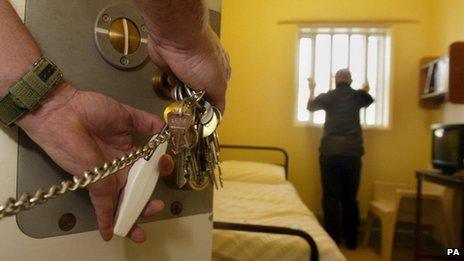
If you are not registered to vote in Scotland then you cannot vote.
So, people who consider themselves Scottish living outside Scotland will not be able to have their say. About 800,000 Scots live in other parts of the UK.
Convicted prisoners are another group that will not be given a say.
Do I need to register to vote?

To vote in the independence referendum - including those aged 16 on the day - you need to be on the electoral register.
If you are already on the register and your details have not changed, then you will not be required to re-register.
However, if your details have changed since you last voted - or if they will change before the referendum - then you will need to get in touch with the electoral registration office, external.
How do I register to vote?
An animation explaining how first-time young voters can register to take part in the referendum on Scottish independence.
The Electoral Registration Office contacted households in October and November 2013 to check the names of those who are eligible to register. Each house was sent two forms.
One requested the details of those who are 15 but will be 16 on the day of the vote. The second form requests the details of everyone else.
If you have not received a form, or need another copy, you can contact your local Electoral Registration Office to request a new one or you can download a form, external.
The deadline for registering to vote is midnight on 2 September 2014.
How do I cast my vote?
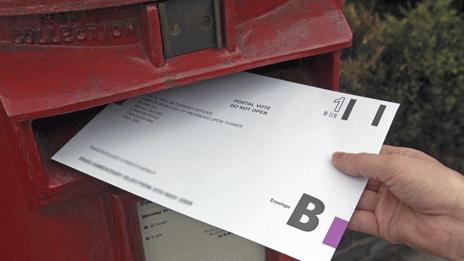
There are three ways in which you can vote.
The most common way is to vote in person at a polling place - usually a town hall or school nearest to you.
Alternatively, you can use a postal vote - where you send a completed ballot in by post rather than casting it in person.
Or a proxy vote - where you appoint a person you trust to vote on your behalf.
The deadline to apply to use a postal or proxy vote at the referendum - excluding an emergency proxy vote - is 17:00 on 3 September.
Polling places will open on 18 September from 07:00 and close at 22:00.
How do I apply for a proxy vote?
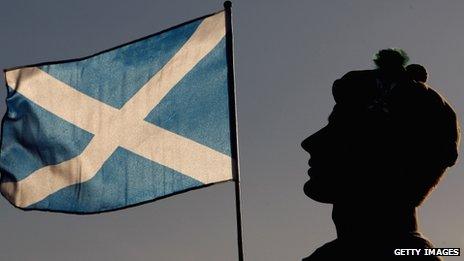
You can only apply for a proxy vote if your reason for needing it is one of the following;
You are unable to go to the polling station, for example, if you are away on holiday.
You have a physical condition that means you cannot go to the polling station on election day.
Your employment means that you cannot go to the polling station on election day.
Your attendance on an educational course means that you cannot go to the polling station on election day.
Or you are a crown servant or a member of Her Majesty's Armed Forces who is unable to make it to a polling station.
If this is the case, then you could fill out an application form, external.
You would also need to fill out an application form if you wanted a postal vote.
What is an emergency proxy vote?
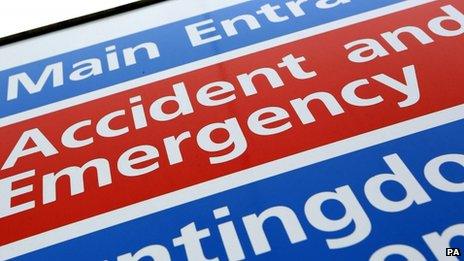
If you have a medical emergency after the proxy vote deadline has passed, which means you will be unable to vote in person, then you could apply for an emergency proxy vote.
The deadline for emergency proxy votes is 17:00 on 18 September 2014.
Who can vote on my behalf?

Anyone who is eligible to vote in the referendum can vote on your behalf as long as they are willing.
You cannot act as a proxy for more than two people - unless they are a close relative.
Do I need to vote?
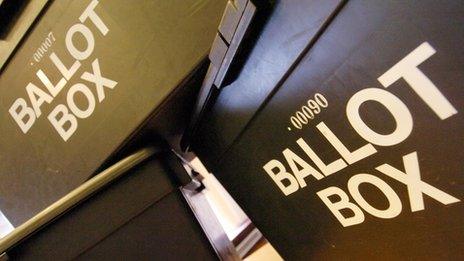
No, like all elections in the United Kingdom, compulsory voting is not in place for this referendum. It is up to each individual to decide whether they wish to vote.
When do we find out the results?
Immediately after the polls close at 22:00 on 18 September 2014, the votes will be counted. However, a paper from Chief Counting Officer Mary Pitcaithly declared: "an estimate of a final result cannot be given with any confidence".
Counts will be taking place in 32 local authority areas and a number of factors could mean a longer wait than usual for the results.
Mary Pitcaithly wrote: "With the current processes and volumes of ballots, particularly postal votes, it is unlikely to be in the early hours as might have been the experience in previous elections. Turnout, volumes of postal votes and logistical factors dependent on the geography and climate must all come into the consideration."